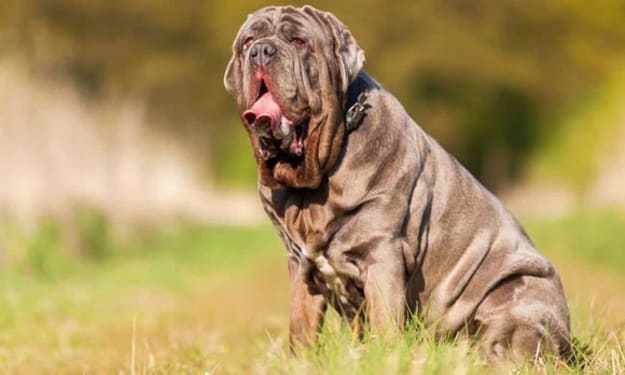
As we grow older, the companionship and joy a furry friend can bring become even more precious. Choosing the right dog breed is crucial for seniors, considering factors such as energy level, size, and grooming needs. In this comprehensive guide, we'll explore the best dog breeds for seniors, helping you find the perfect canine companion to enrich your golden years.
Understanding the Benefits of Dog Ownership for Seniors
Owning a dog can have numerous benefits for seniors, both physically and emotionally. Studies have shown that seniors with dogs tend to be more active, leading to improved cardiovascular health and reduced risk of obesity. Additionally, the companionship of a dog can alleviate feelings of loneliness and depression, promoting overall well-being.
Dogs can also serve as social catalysts, encouraging seniors to engage with their community and meet new people during walks or at dog parks. The unconditional love and affection from a furry friend can provide a sense of purpose and joy, making each day a little brighter.
Factors to Consider When Choosing a Dog Breed for Seniors
When selecting a dog breed, it's essential to consider several factors to ensure a good match with your lifestyle and needs as a senior. Here are some key considerations:
- Energy Level: Choose a breed with an energy level that matches your own. Low-energy breeds like Cavalier King Charles Spaniels or Bichon Frises may be better suited for seniors who prefer a more relaxed lifestyle, while moderately active breeds like Beagles or French Bulldogs can be great companions for seniors who enjoy regular walks and playtime.
- Size: Smaller breeds are generally easier for seniors to manage, as they are less likely to knock over or pull on the leash during walks. However, it's important to consider your own strength and mobility when choosing a dog's size.
- Grooming Needs: Long-haired or high-maintenance breeds may require more frequent grooming, which can be challenging for some seniors. Opt for breeds with short, low-maintenance coats, such as Greyhounds or Miniature Schnauzers, to minimize grooming requirements.
- Trainability: Choosing a breed known for its trainability can make the adjustment period smoother for both you and your new canine companion. Breeds like Poodles and Corgis are known for their intelligence and eagerness to please, making them excellent choices for seniors.
- Temperament: A friendly, affectionate temperament is essential for a successful senior-dog relationship. Look for breeds known for their gentle nature and tolerance of various living situations, such as Shih Tzus or Cavalier King Charles Spaniels.
The Best Dog Breeds for Seniors
Now that we've covered the key factors to consider, let's dive into the top dog breeds that are particularly well-suited for seniors:
1. Cavalier King Charles Spaniel
The Cavalier King Charles Spaniel is a popular choice among seniors due to its gentle, affectionate nature and relatively low energy level. These small dogs are content with short walks and indoor playtime, making them ideal for apartment living. Their long, silky coats require regular grooming but provide an opportunity for bonding through brushing sessions.
2. Bichon Frise
With their cheerful disposition and manageable exercise requirements, Bichon Frises thrive in the company of seniors. These fluffy, white dogs are known for their hypoallergenic coats, which shed minimally, making them a great choice for seniors with allergies. Regular grooming is necessary to maintain their soft, curly fur.
3. Shih Tzu
Shih Tzus are renowned for their loyalty, adaptability, and gentle nature, making them excellent companions for seniors. These small dogs are content with short walks and indoor play sessions, and their long, flowing coats require regular grooming to prevent matting and maintain their distinctive appearance.
4. Poodle (Toy or Miniature)
Poodles, especially in their toy or miniature sizes, are intelligent, energetic, and well-suited for active seniors. Their smaller size makes them more manageable for apartment living while still enjoying regular walks and outdoor activities. Poodles are also known for their hypoallergenic coats, which shed minimally.
5. Pembroke Welsh Corgi
Despite their short legs, Pembroke Welsh Corgis are surprisingly athletic and energetic, making them perfect companions for active seniors who enjoy spending time outdoors. These herding dogs are loyal, intelligent, and eager to please, which makes them relatively easy to train. Their double coats require regular brushing to maintain their appearance and prevent shedding.
6. French Bulldog
French Bulldogs are known for their happy-go-lucky personalities and adaptability to various living situations. These small, muscular dogs are active and playful, but they tire easily, making them suitable for seniors who enjoy moderate exercise. French Bulldogs are affectionate, loyal, and generally good with children, making them a great choice for seniors with grandchildren.
7. Beagle
Beagles are friendly, curious, and energetic dogs that can be excellent companions for active seniors. These medium-sized hounds are known for their intelligence and trainability, although they may require more exercise than some other breeds on this list. Beagles are also known for their excellent sense of smell, which can make them prone to following their noses and chasing small animals.
8. Boston Terrier
Boston Terriers are compact, sturdy, and full of personality, making them great companions for active seniors. These small dogs enjoy regular walks and playtime, but their size also makes them suitable for indoor living. Boston Terriers are known for their friendly, affectionate nature and their distinctive "tuxedo" markings.
9. Greyhound
While not typically associated with seniors, Greyhounds can make excellent companions for older adults. These large, graceful dogs are known for their calm, gentle nature and their love of lounging around the house. Greyhounds are relatively low-maintenance in terms of grooming and exercise, making them a good choice for seniors who prefer a more relaxed lifestyle.
10. Miniature Schnauzer
Miniature Schnauzers are intelligent, energetic, and loyal dogs that can be great companions for active seniors. These medium-sized dogs enjoy regular exercise and playtime, but their size makes them suitable for apartment living. Miniature Schnauzers are known for their distinctive bearded faces and their friendly, affectionate nature.
Tips for Introducing a Dog to a Senior's Lifestyle
When bringing a new dog into a senior's life, it's essential to take the necessary steps to ensure a smooth transition for both the senior and the canine companion. Here are some tips to keep in mind:
- Start with an older dog: While puppies are cute, they require a significant amount of training and energy. Adopting an older dog can be a better fit for seniors, as these dogs are often already house-trained and have a calmer temperament.
- Introduce the dog gradually: Take time to introduce the dog to its new environment and routine. Allow the dog to explore the home at its own pace and provide positive reinforcement during interactions.
- Establish a routine: Seniors thrive on routine, and dogs benefit from consistency as well. Establish a daily schedule for walks, meals, and playtime to help the dog feel secure and comfortable in its new home.
- Provide mental stimulation: Engage the dog in activities that challenge its mind, such as puzzle toys or training sessions. Mental stimulation can help prevent boredom and keep the dog's mind sharp.
- Consider the dog's size: As mentioned earlier, smaller dogs are generally easier for seniors to manage. Make sure the dog's size is appropriate for the senior's strength and mobility.
- Seek support when needed: Don't hesitate to ask for help from family members, friends, or professional dog walkers if you need assistance caring for your canine companion.
Conclusion
Choosing the right dog breed can significantly enhance a senior's quality of life, providing companionship, motivation for physical activity, and emotional support. By considering factors such as energy level, size, grooming needs, and temperament, seniors can find the perfect furry friend to share their golden years with. Remember to introduce the dog gradually, establish a routine, and seek support when needed to ensure a successful and rewarding relationship.
About the Creator
Hasan
Welcome...
In this site of mine you can learn amazing things and many information that you don't know so please subscribe to my site.
Enjoyed the story? Support the Creator.
Subscribe for free to receive all their stories in your feed. You could also pledge your support or give them a one-off tip, letting them know you appreciate their work.






Comments
There are no comments for this story
Be the first to respond and start the conversation.